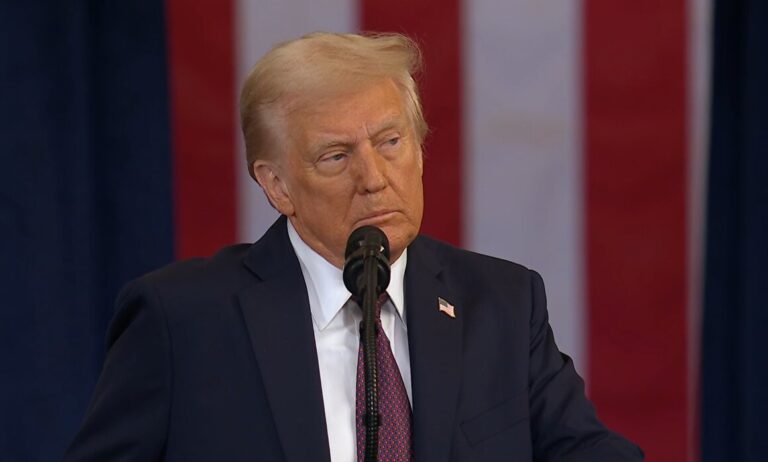Trump Welcomes Canada’s Carney for Key White House Meeting: A Look at Economic Collaboration
In a significant diplomatic meeting, Canada’s Prime Minister, Mark Carney, engaged with U.S. President Donald Trump at the White House. This encounter has sparked discussions about the future of the relationship between Canada and the United States, especially given the backdrop of recent tensions regarding sovereignty and trade. The implications of this meeting are crucial for understanding the dynamics between these two neighboring countries.
During the meeting, President Trump remarked that it was “highly unlikely” he would resort to military action to annex Canada, a nation that plays a vital role as a trading partner and political ally. This statement comes in light of Trump’s previous threats to exert economic pressure on Canada, aiming to make it the 51st state of the U.S. Here are some key takeaways from their discussions:
- Trump’s Threats: The U.S. President has been vocal about his intentions to use economic coercion against Canada.
- Carney’s Campaign Focus: The Prime Minister built his election campaign around Canadian outrage over perceived threats to national sovereignty.
- Reassurance from Carney: After his election win, Carney reassured Canadians that annexation was not a feasible prospect.
- Reality Check: Carney emphasized the importance of distinguishing between what is desired and what is actually possible in international relations.
Over the weekend, Trump stated, “I think we’re not ever going to get to that point, something could happen with Greenland … I don’t see it with Canada, I just don’t see it, I have to be honest with you,” according to a report by Reuters. This comment reflects a slight softening of his earlier aggressive stance towards Canada.
Mark Carney, who recently secured his position as Prime Minister, has made it clear that he will not entertain the notion of Canada becoming a U.S. state. This message was reiterated during his victory speech, where he passionately conveyed to his supporters that Trump aims to “break us, so that America can own us.” His rhetoric highlights the deep-rooted concerns among Canadians regarding their sovereignty and independence.
In his first press conference following the election, Carney was emphatic in dismissing any suggestions that Canada might be interested in becoming the 51st state. “It’s always important to distinguish want from reality,” he stated on Friday, reinforcing his commitment to protecting Canadian sovereignty. This sentiment resonates strongly with many Canadians who value their national identity and independence.
The relationship between Canada and the U.S. is complex, influenced by a myriad of factors including trade agreements, border security, and cultural ties. As both leaders navigate this relationship, it is imperative for them to communicate effectively and address the concerns of their citizens. Some critical aspects of this relationship include:
- Trade Agreements: The two nations heavily rely on each other for trade, making cooperation essential for economic stability.
- Security Concerns: Both countries share a long border and work together on various security issues.
- Cultural Connections: The cultural ties between Canadians and Americans foster a unique bond that transcends politics.
- Public Sentiment: The views of citizens in both countries play a significant role in shaping the diplomatic landscape.
As this diplomatic relationship evolves, it is crucial for both leaders to prioritize transparent communication and mutual respect. The world is watching closely as these two nations navigate their complex relationship, and the outcomes of their discussions could have lasting implications for North America.
Ultimately, the meeting between Prime Minister Mark Carney and President Donald Trump serves as a reminder of the delicate balance of power and influence in international relations. Both leaders face the challenge of addressing their citizens’ concerns while maintaining a cooperative and productive partnership that benefits both countries.






